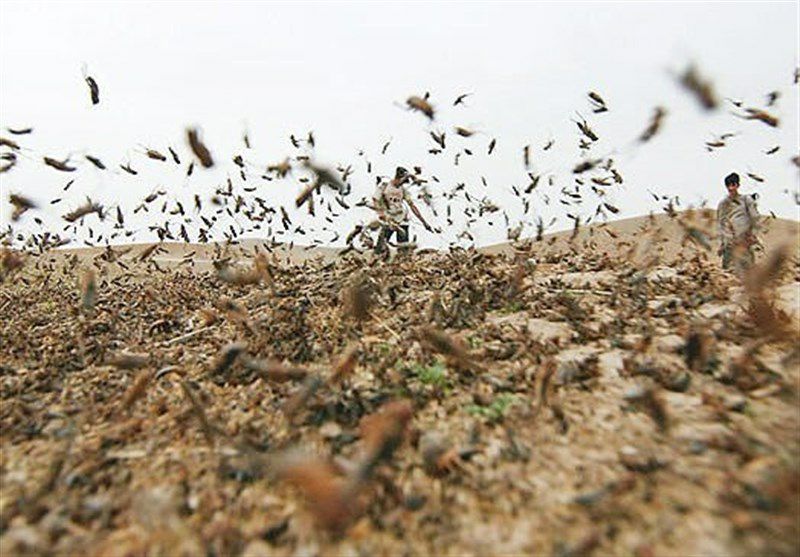RASC: A number of farmers in Takhar, Samangan and Kunduz provinces say that since one month, locusts have invaded and destroyed their wheat, melon and tomato fields.
Adam Khan, a resident of Dasht e Qala city of Takhar province, says that he had planted 560 Kg of wheat in one of his fields. However, locusts have destroyed 350 Kg of it. He adds: “These locusts come from the plains and mountains and directly attack the flowers of our crops and other crops. The first crop is totally destroyed and we don’t know what will happen to our second crop, whether we can not to get anything from it or not.”
Ghousuddin, a farmer and tribal elder in Samangan province, says that nearly locusts have destroyed 40% of the wheat and barley fields in Samangan province. “We killed a lot of locusts,” he adds. This year there were so many locusts that if we did not destroy them, it was possible to take all the grasshoppers. “Tens of thousands of hectares of land are still at risk.”
Similarly, Javad, a resident of Kunduz province, says that if the invasion of locusts on his fields is not stopped, he may not have any harvest this year. Concerned about the loss of some of their crops due to the locust attack, he says: “The locusts attacked our crops and destroyed some of our crops. The government had a program before and they locusts came in these areas; but this program didn’t work.”
Meanwhile, Gulabuddin Ghiasi, general manager of Plant Protection and Quarantine of the Department of Agriculture of Samangan Province, says; while he has done the chemical and mechanical debate to destroy the locusts; however, locusts still threaten farmers’ fields in a number of cities in this province, including Rabatak. He adds: “This is a dangerous pest. If the authorities do not pay attention and do not provide the medicine to the farmers at the right time, it is beyond the power of the people. “People can’t buy medicine.”
On the other hand, the Ministry of Agriculture, Irrigation and Livestock says that in order to prevent the invasion of locusts, especially the Moroccan locust, this ministry has sent 34,550 liters of lethal substances and laboratories along with pest control teams to all provinces.
Misbahuddin Mustahin, the spokesperson of the ministry, says: “Deadly medicine has been sent to the provinces enough. “If the farmers come to our doctors with samples of sick plants, the doctors will see the plant and give them medicine after diagnosis.”
The Ministry of Agriculture, Irrigation and Livestock of the Taliban group emphasizes that there is no serious threat from locusts to farmers’ fields and the protection groups of this ministry have the situation under control.
The Food and Agriculture Organization of the United Nations (FAO), on Wednesday of last week – 10 May had published a report, warning about the widespread attack of the Moroccan locust on wheat fields in eight northern and northeastern provinces of Afghanistan. Balkh, Kunduz, Badakhshan, Badghis, Baghlan, Samangan, Sarpol and Takhar are among the provinces where the presence of Moroccan locusts has been reported.






